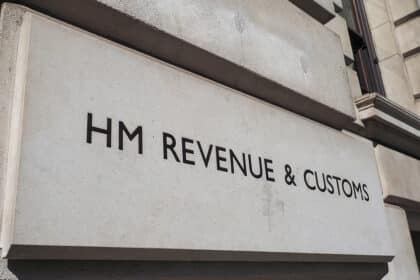The government has revealed that it will examine the raised concerns in a future consultation.
The United Kingdom is considering giving the HM Revenue and Customs (HMRC) department the authority to seize crypto assets from the custodial wallets of companies evading tax. This comes on the heels of the recent normalization of crypto payments by the government. It is part of an initiative to modernize the tax collection process for businesses that have neglected their fiscal responsibility.
According to a new consultation paper, the UK parliament is looking to revise a piece of legislation called the Direct Recovery of Debts (DRD), which gives the HMRC authority to seize the bank accounts of tax evaders. The paper proposes extending the tax authority’s power to include access to custodial wallets and PayPal accounts.
“Given HMRC has had the power to recover established debts directly from debtors’ bank and building society accounts for 7 years, as a matter of principle, equity and fairness it makes absolute sense that HMRC should modernize their approach so that the same power exists in relation to digital wallets,” the paper states in part.
Stakeholders have expressed confidence in HMRC’s ability to carry this out without breaching digital wallet privileges given the department’s prudent use of the current DRD.
The government is expected to consult with “wallet operators” in efforts to develop the proposal and understand the challenges that its implementation would pose. It is worth noting that while crypto exchanges cannot prevent inflows, they can prevent wallet users from making fiat withdrawals or transferring their assets to another wallet.
The government has revealed that it will examine the raised concerns in a future consultation. This comes just weeks after Financial Secretary to the UK Treasury Andrew Griffith stated that industry-specific regulations are set to take shape within the next 12 months.
It remains unclear whether the tax authority’s jurisdiction will only end at centralized exchanges where an individual does not control their own private key. As it stands, non-custodial wallets are ideally immune to government seizure and require the consent of the owner before such action is taken. The HMRC states that it “will consider the issues raised in relation to practically implementing this proposal in a future consultation and ensure that safeguards are taken into account in any policy development going forward”.
The HMRC collected £787 billion ($994 billion) last tax season and has stated that crypto would be added to individual returns, adding about $12 million in capital gains collection.
Currently, law enforcement authorities are able to seize crime-linked crypto. Last year, the London Metropolitan Police broke up a drug trafficking ring by tracing crypto transfers between the exporter and importer. In 2021, they seized a total of $400 million in illicit cryptocurrency.
next